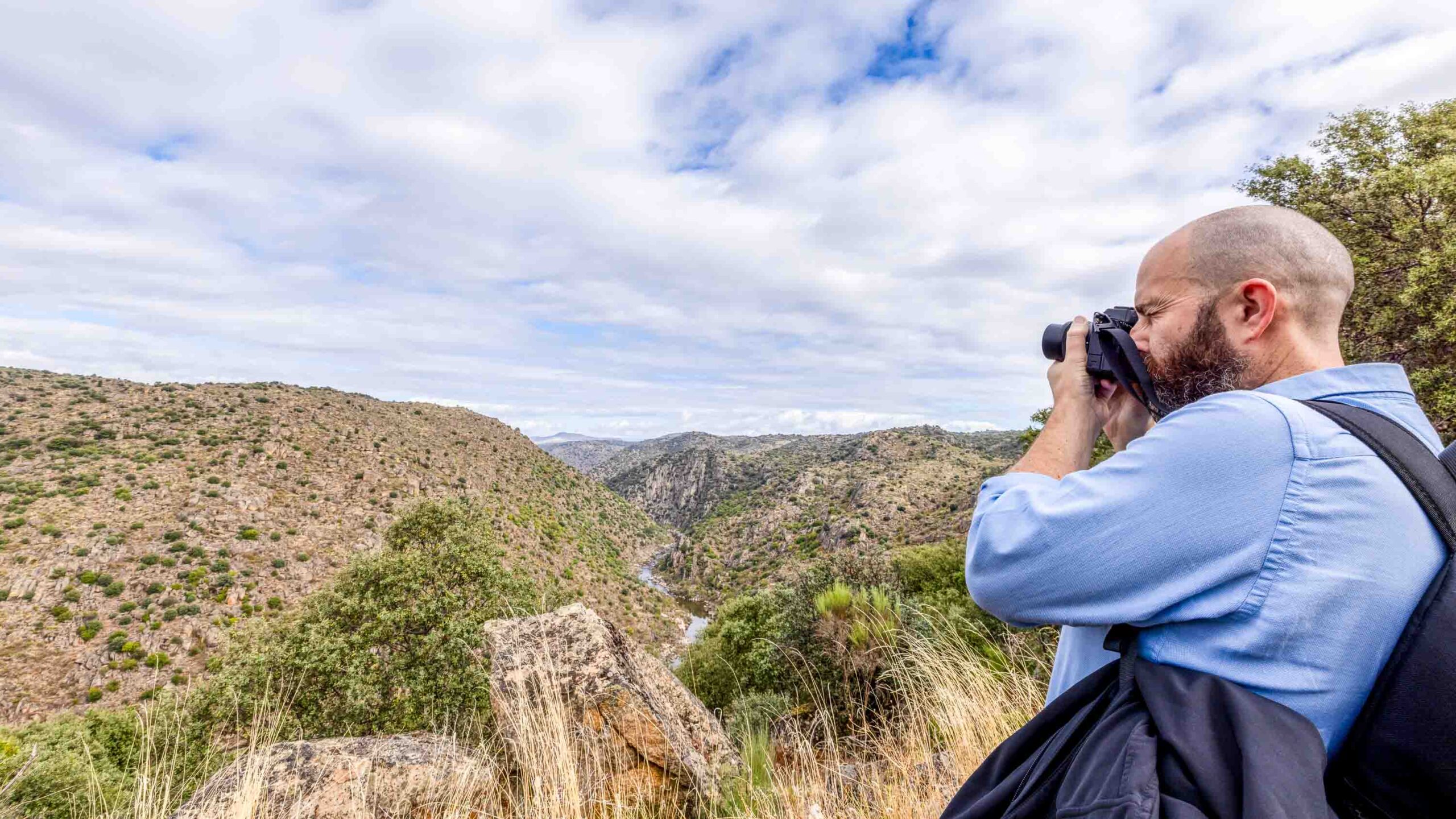Farming’s loss has been nature’s gain, however, thanks to Ana, Antonio, and the other biologists. Turning the despair of the fleeing farmers into hope, combining the small parcels of land they bought one by one into a protected whole, they founded Faia Brava, Portugal’s first private nature reserve. That was 25 years ago. Now, Faia Brava is leading the country’s rewilding efforts, nurturing griffon vultures and Bonelli’s eagles, wild horses and native grasses, on over 2,000 acres of cliffs, river, and windswept rolling hills, and the biologists are still buying up land as and when it becomes available, as the last few farming families in the valley opt for the city’s ready resources over the uncertainty of life on this ancient landscape.
Antonio, a biologist like his wife, has an infectious love for the flora and fauna of the area. As the sun warms us and eagles circle lazily overhead, he tells us how the queen ants we observe (in mild terror at their size) will leave to found their own colonies. And as the sun rises and we reach the top of a rocky ravine, the sharp-sided Côa river opening out before us, he shows us how to spot vulture nests on the steep cliffs by their guano (excrement) trail below them.
But when I ask about the return of the lynx, the apex predator that used to stalk these lands, recently spotted south of here after being thought extinct for decades, Antonio’s cheerful disposition wavers. “The lynx,” he tells us, “can only come if the whole system is fixed.”

